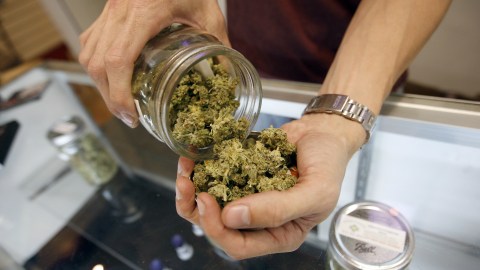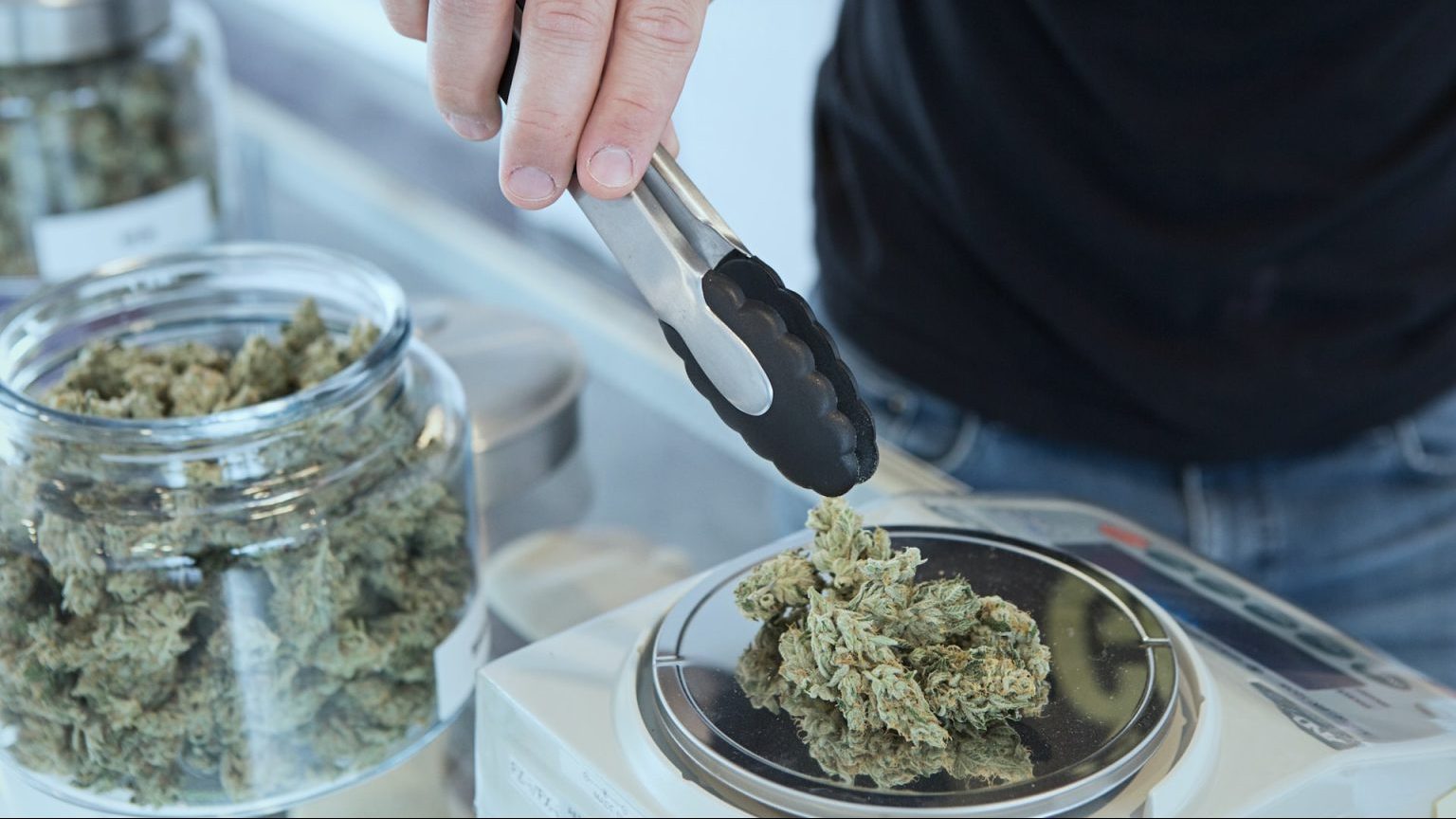Recreational Marijuana Is Reversing the Opioid Crisis in Colorado, Study Suggests

One way for states to curb the opioid crisis might be to completely legalize another drug: marijuana.
According to a report set to run in November’s edition of the American Journal of Public Health, the amount of opioid-related deaths dropped by 6.5 percent in Colorado during the two years following the legalization of recreational marijuana in 2014.
“This reduction represents a reversal of the upward trend in opioid-related deaths in Colorado,” the researchers wrote in the report. “Legalization of cannabis in Colorado was associated with short-term reductions in opioid-related deaths.”
The researchers — from the University of North Texas, University of Florida and Emory University — analyzed opioid-related deaths in Colorado from the start of 2000 to the end of 2015. To determine whether it was recreational or medicinal marijuana that was potentially impacting opioid death rates, researchers compared data from Colorado with data from Nevada and Utah — states where only medicinal marijuana was legal during the time periods considered for the study.

They also tried to account for changes in Colorado’s prescription-drug-monitoring program, which in 2014 began requiring those prescribed opioids to sign up for, but necessarily use, the program.
While results showed a 6.5 percent reduction in opioid-related deaths — about one less death per month than in previous years — the researchers cautioned that further research is needed before drawing any strong conclusions.
“Although we found an apparent public health benefit in a reduction in opioid-related deaths following recreational cannabis legalization in Colorado, we note that expanded legalized cannabis use is also associated with significant potential harms,” the authors wrote. “For policymakers to balance the potential beneficial and deleterious effects of these laws, researchers must continue to examine the full range of health effects in both clinic- and population-level research.”

It’s not the first study to look at the interaction between marijuana and opioids at the state level. A 2014 report showed that states that legalized medicinal marijuana had lower opioid-related deaths, and other research has shown that medicinal marijuana is effective at mitigating chronic pain. But the new report offers the first glimpse of how the accessibility of recreational marijuana might affect opioid abuse rates.
Still, some experts are wary of the conclusions people may draw.
“The whole thing is so convoluted, with so many different things going on in the marketplace,” said Robert Valuck, professor at the University of Colorado-Denver’s School of Pharmacy and Pharmaceutical Sciences and director at the Colorado Consortium for Prescription Drug Abuse Prevention, to the Denver Post. “It’s virtually impossible to assign cause and effect or credit and blame to any one thing.”
Valuck noted other factors in 2014 that could have contributed to the reduction: increased public education about the dangers of opioids, and “wider distribution of the overdose-reversing drug naloxone.”
Another explanation for the downturn in opioid deaths is that people could be simply switching from one substance to another, namely heroin: deaths by heroin overdose doubled from 2011 to 2015, and the amount of heroin seized by police jumped by 1,562 percent during the same period.
The opioid crisis nationwide
The data on opioid-related deaths is startling. According to death rates released by National Center for Health Statistics, 59,520 people have died from opioids from September 2015 to September 2016. That’s enough people to fill Chicago’s Soldier Field, as the Washington Post notes. Opioid abuse kills about 100 people every day in the U.S., accounting for about six out of every 10 drug overdose deaths.
The future doesn’t look any better. Most projections say opioid abuse will claim about 500,000 lives over the next decade, and that death rates won’t begin to curb until at least 2020.
“It took us about 30 years to get into this mess,” Valuck said to health news website STAT. “I don’t think we’re going to get out of it in two or three.”
After consulting public health experts at 10 universities nationwide, STAT compiled a worst-case projection for opioid deaths over next decade that assumes doctors will continue freely prescribing the drugs.

The publication also offered a best-case scenario, but cautioned that reaching those numbers “would require a major public investment in evidence-based treatment options and a concerted push among medical providers to control pain with non-narcotic therapies before trying prescription opioids.”

The recent report on Colorado may have stirred excitement, but most seem to agree that more evidence is needed before other states decide to legalize recreational marijuana for the purpose of reducing opioid abuse.
“Everybody wants the answer now because we want to know if this is a good idea or not,” Valuck said to the Denver Post. “But the truth is we don’t have the answer, and it’s going to be a while until the jury comes back in.”
Melvin Livingston, a co-author of the Colorado report, echoed that sentiment:
“Policy change shouldn’t be based on the results from a single study of a single outcome.”





